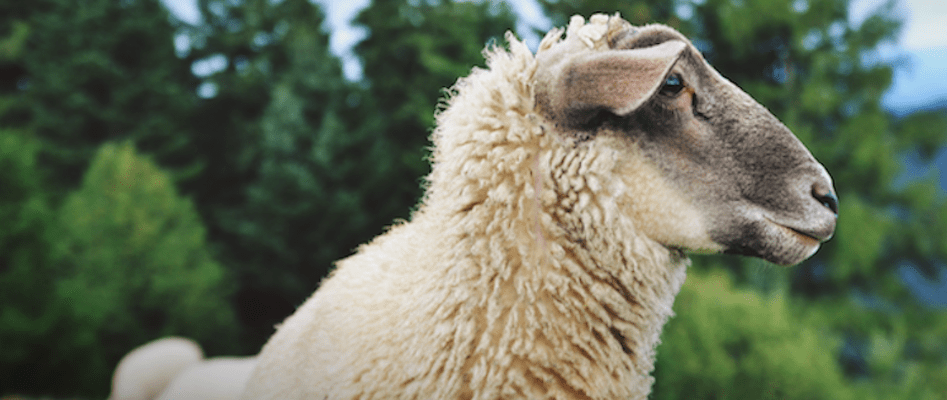
The Sheep You’ll Meet
He was a fastidious sort of sheep, even on death row. While his colleagues had strewn their patches of barn with hay and excrement, he kept his tidy. His wool reflected the light sneaking through the porous ceiling, and although he exuded a sour barn-smell, it was clear that if he wanted to he could smell better than the sweaty young man staring down at him on that late August afternoon. Four days later, or something thereabout, I am told he was a satisfactory roast.
I met the clean sheep during a semester’s work on a political campaign in rural New Hampshire. His owner, Tim, hosted a weekly event that I was tasked with organizing, so on Tuesday nights I would pull down a long dirt driveway and offer him a sharp nod as I walked into the house. Ours was a chilly relationship; the child of a writing professor and the owner of a daycare, I wasn’t very accustomed to sheep, and surely he had no love for people. Yet the news that he was working his way through Tim’s digestive tract was a bit jarring. I have childhood memories of watching my father debone chickens, which is a gruesome flurry of cracking and slicing, but there is something altogether more anonymous about that kind of gore.
Tim delivered the news with a remarkable amount of nonchalance. To him, it would have been absurd to put the time and effort into raising a sheep only to have it feed a family of worms rather than his own. Having seen him treat the clean sheep like a pet, I met his comfort with a fiery indignation. In that moment, the pastrami sandwich I had eaten for lunch occupied a different moral category than the roast sheep because I did not know its name.
By the time I pulled out that evening, a wave of discomfort had begun to break over me. It was not a deep reflection on the ethical implications of my diet, and this is not, unfortunately, the origin story of my veganism. I still eat lamb, and I still do not know whether it washes its wool. Rather, the unease that hit me that evening was more about me, and I suppose a bit about Tim.
There is a certain insight to be gained in split second irrationality. Of course there is no real moral defense of my meat consumption as compared to Tim’s, but there is something to be found in the instinct I felt to reject the latter out of hand. It is an instinct, I think, borne more of unfamiliarity than of disagreement. In that moment, the way his ethics presented themself did not have the shorthand signifiers of moral behavior that I was accustomed to finding in my community. That is, people I know don’t do that. In an instant, we became aware of a great big jagged gulf that stood between us. Crucially, though, it really wasn’t a result of two opposing moral systems, but rather how utterly insular my life had been up until that point.
As a matter of course, we expect a persons childhood years to be largely insulated from the outside world. Parents and schools dominate a child’s exposure to differing sensibilities, and for the most part, mostly tend to aim at reproducing their own. Thus for many, the first meaningful opportunity to encounter a different sort of community, built on an entirely different brand of sensibility, is when they step onto a college campus.
The trouble is, however, that the way in which 17-year-olds make their college decision almost always runs at odds with this high-minded pursuit of moral discovery. Children and their parents look for a college that has a community that, in very key ways, reflects their own. The I just knew when I stepped sense that you hear from students describing how they chose their school is the deep sense that these people are just like me. In the cases when this is not the case, norms of appropriate behavior still tend to reinforce themselves in smaller self-selected subgroups on campus.
As a result, it is incredibly easy to develop an exaggerated sense of difference. More seriously, it is apparently natural to experience that unfamiliarity as a moral objection. Tim and I are degrees apart on most things that matter, but the extent to which my life has been segregated from his leaves us with the sense that an ocean separates us. There is a very real, and altogether threatening resentment that can arise from that alienation.
Asking a 17-year-old, who otherwise does not get asked to do their own laundry, to decide which college they would like to go to is daunting enough as it is. They can be permitted a comfortable choice. Several years later, however, when we begin to make choices about where to work and what to pursue, we have to be aware of how easily we become absolutely isolated. This is, perhaps, not at the top of the list of concerns we tend to have when selecting a future. However, in that fleeting window when it is possible to do something for six months, hate it and go back to school, it deserves some consideration.





